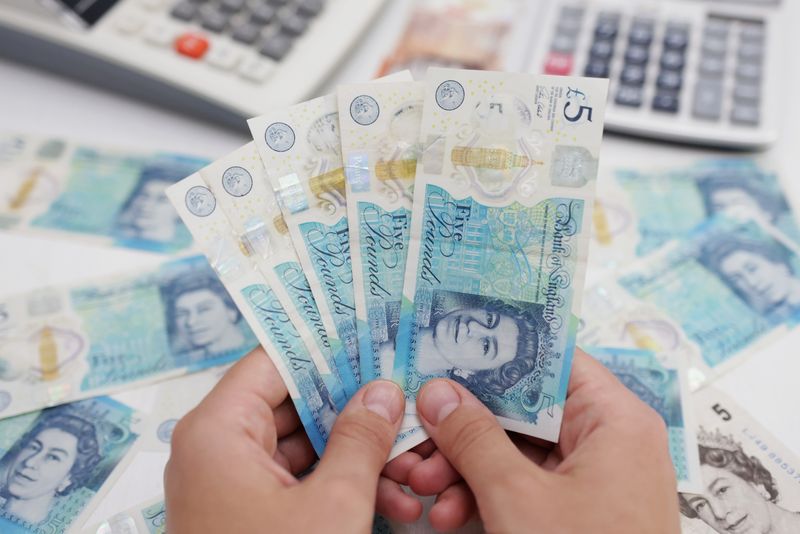By Joice Alves
LONDON (Reuters) - The pound edged lower on Thursday, off a three-week high after data showed Britain's economy only partially recovered in August after a sharp drop in the prior month.
After last year's surge in inflation and 14 back-to-back interest rate hikes by the Bank of England (BoE), Britain is seeing only sluggish growth.
Sterling fell 0.15% on the day to $1.2296, retreating from a three-week high touched on Wednesday against the greenback.
Versus the euro, sterling dropped 0.14% to 86.35 pence, after scaling its highest against the single currency since Sept. 19.
"Today's reading reinforces a narrative that the UK is slipping into stagnation rather than recession," said Nick Rees, FX market analyst at Monex Europe.
"In the absence of a growth pickup, further rate hikes look unnecessary, but with a sharp recession also appearing unlikely at this point, nor is there a need to pull forward the timing of any rate cuts."
Sterling's rally this week has eased, in part, as investors re-evaluate their expectations for U.S. interest rates and for the outlook of euro zone growth, rather than down to any standout factor in Britain.
Money markets are pricing no more rate hikes by the BoE after the central bank didn't raise its benchmark interest rate in September. Markets are pricing in a first rate cut next August, according to LSEG data.
BoE Chief Economist Huw Pill said the British central bank is fully committed to bring inflation to target.

"Whether we've done enough - or whether we have more to do - I think is becoming a more finely balanced issue. But we will do what we need to do in order to have inflation at 2% on a lasting basis," he said.
The economy has already flatlined, and about 20% or 25% of the impact of interest rate hikes has fed through to the economy, BoE policymaker Swati Dhingra said in an interview with the BBC.